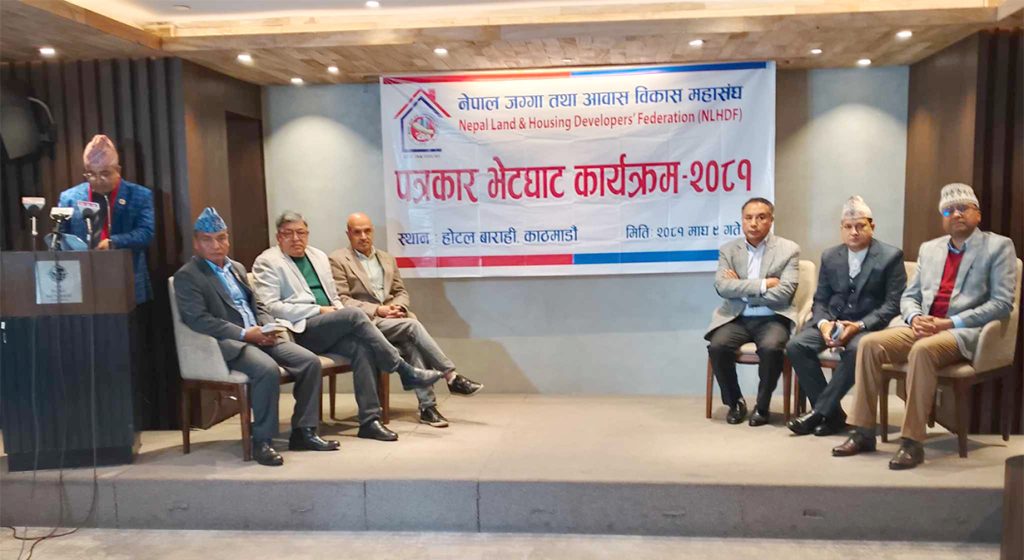KATHMANDU: The Nepal Land and Housing Developers Association has urged the government to expand the land ceiling regulations and introduce legal provisions to attract foreign investment in real estate projects and allow foreigners to purchase apartments in Nepal. The association believes these measures would promote the real estate sector as an industry and significantly strengthen the national economy.**
The association has consistently advocated for contemporary reforms in laws and policies related to urban development and the real estate sector, emphasizing the need for a modernized approach to boost the industry. Speaking at the central executive committee meeting held on January 18 in Hetauda, Makwanpur, participants stressed that constructing at least one model city in each province and expanding the land ceiling limits would be crucial steps to promote the real estate sector. These demands were reiterated during a press conference held in Kathmandu today.
The association expressed gratitude to the government for issuing the *Land (Some Nepal Acts Amendment) Ordinance 2081*, which amended existing laws to provide relief in land ceiling restrictions within the real estate sector. However, the association emphasized the need to implement these changes through amendments to land and property registration regulations, along with revisions to land administration directives and operational procedures.
A key demand raised by the association involves clear legal provisions to address the ownership transfer of common areas within apartments or houses that are currently held under the name of the founding company or entity. The association also urged the government to streamline the taxation system associated with such transfers to avoid ambiguity and disputes.
The association believes that opening the real estate sector to foreign companies and enabling foreigners to purchase apartments in Nepal would have a transformative impact on the country’s economy. It argues that such measures would significantly boost foreign currency reserves while fostering economic growth. Although the government has expressed commitments to address this issue in its annual budgets, the lack of corresponding legal frameworks has hindered progress.
The association also highlighted the potential benefits of foreign direct investment (FDI) in real estate, arguing that it could lead to the development of large-scale projects, the creation of jobs, and the modernization of Nepal’s urban infrastructure. By allowing foreigners to purchase apartments, the association believes Nepal can position itself as an attractive destination for international investors and expatriates.
Despite these potential benefits, the association noted that delays in legal reforms have created challenges for the real estate sector to reach its full potential. Participants at the Hetauda meeting emphasized that policy stagnation has limited the industry’s ability to contribute to national economic growth. They also pointed to the need for the government to prioritize the development of a comprehensive legal framework that aligns with international standards and supports sustainable urban development.
The association further stated that its proposals align with Nepal’s broader economic goals and could help address issues such as urbanization, housing shortages, and economic diversification. It called on the government to engage in constructive dialogue with stakeholders in the real estate and housing sectors to ensure that new policies effectively address the industry’s challenges.
The meeting also underscored the importance of public-private partnerships in achieving these goals. Participants highlighted how collaborative efforts between the government and private sector could accelerate the development of model cities, improve housing standards, and attract international investors.
As Nepal continues to face economic challenges, the association believes that unlocking the potential of the real estate sector could serve as a catalyst for growth. It urged the government to act swiftly to implement necessary reforms and facilitate the development of a robust and competitive real estate industry.

